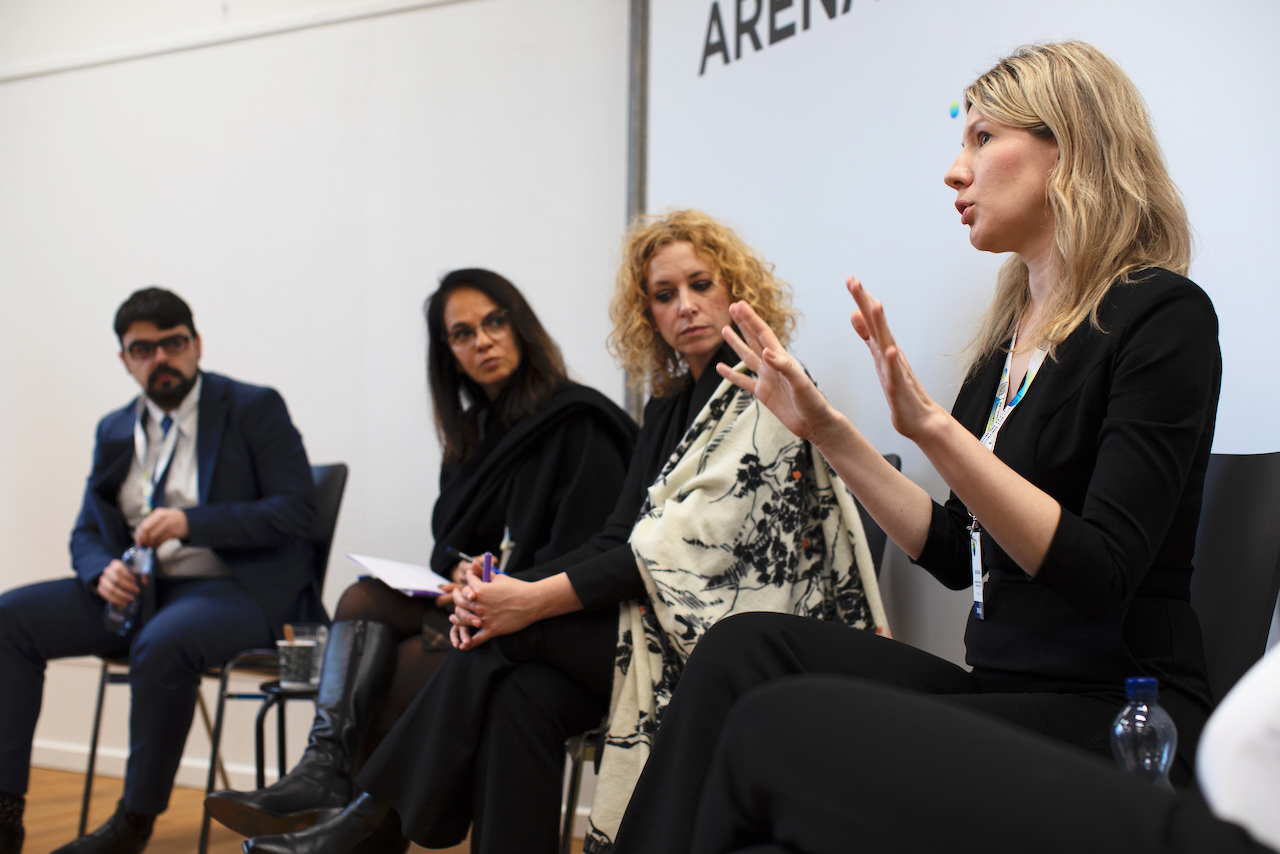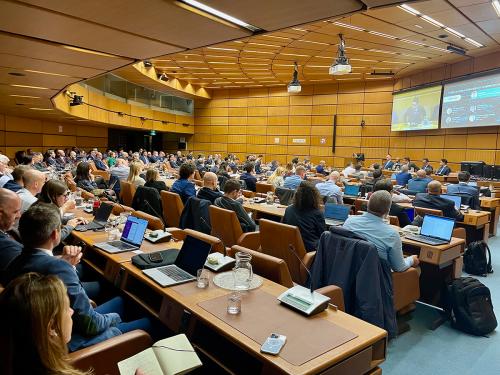Fighting corruption to promote peace and security: Basel Peace Forum 2024

How can corruption affect peace and security? Where does corruption influence or intersect with geopolitics? And how can peace-building and anti-corruption serve a common goal?
A two-hour workshop at Basel Peace Forum 2024, organised by Swisspeace, delved into these questions and more. Moderated by Gretta Fenner, Managing Director at the Basel Institute on Governance, the panel looked at some of the most critical intersections of corruption, security, peace and geopolitics.
Our thanks to the engaged audience and fantastic panel of speakers from Transparency International’s Defence and Security programme, NAKO – the Independent Defence Anti-Corruption Commission of Ukraine, the Centre for the Study of Democracy in Bulgaria and our own Prevention, Research and Innovation team.
The main takeaway? The urgency of more collaboration and knowledge exchange between the anti-corruption, peace building and defence and security fields. As Gretta Fenner said in her closing remarks:
“It’s time to fight for peace through anti-corruption and to fight corruption through peace building.”
Corruption: about power and influence
When we look at corruption in the context of peace, stability and geopolitics, we must first understand that when we say “corruption”, we mean more than “just” the bribery often associated with the word corruption. Instead, the notion of corruption encompasses behaviours like patronage, nepotism, embezzlement, influence peddling or the manipulation of legislative processes with a corrupt objective.
Any of these corrupt practices can serve a one-off purpose. But they are more often than not employed as part of a long-term game, for example to gain or preserve power or geopolitical influence. This is when we can refer to it as “strategic corruption”.
That understanding of corruption as a functional instrument of power and influence helps us to see why corruption is so relevant to peace and security. As Claudia Baez Camargo, Head of Prevention, Research and Innovation, Basel Institute on Governance, said:
“Corruption has a direct effect on the manner in which state power is exercised. As such, it affects security outcomes… Strategic corruption relies on building strategic transboundary networks where financial and political interests are intermixed. Those networks that can be activated and instrumentally used to destabilise and to threaten and to cause harm to other states.”
See more about understanding corruption and security through the lens of power and functionality in this blog by Claudia and her colleague Saba Kassa.
Strategic corruption affects Europe
Russia provides a standout example of the strategic use of corruption to achieve geopolitical goals, said panellists. Martin Vladimirov of the Centre for the Study of Democracy and co-author of the The Kremlin Playbook explained how Putin’s regime achieves political influence in Europe by activating a network of oligarchs with commercial interests on both sides of the border:
“The Kremlin is able to weaponise the oligarchic networks that have been established between Russian companies and European counterparts in order to achieve an outsized political influence.”
Europe needs to wake up to that quickly, warned Olena Tregub, Secretary General of NAKO, the Independent Defence Anti-Corruption Commission of Ukraine:
“In order to dominate countries, Russia uses corruption as a foreign policy tool. It is penetrating into the energy landscape, the media landscape, into education, culture and the financial sector. It’s important to find those corrupt influences in Europe, expose them and stop them from happening. They are making Europe weaker and more vulnerable.”
Treating corruption as a security issue
Attention to the nexus between corruption, peace, defence and security grew after the U.S. established corruption as a “core issue of national security” in 2021.
Elevating corruption to the level of security means that governments need to look at corruption across the state apparatus. The implication is that anti-corruption should form a central part of both domestic security and foreign policy. In other words, corruption can no longer be treated as a side issue.
Ara Marcen Naval, Head of Advocacy Defence and Security at Transparency International, argued:
“Designating corruption as a national security issue means that corruption cannot take a back seat to other security priorities. It means that it has to be a priority for foreign policy… It means that we need to build governance closer to security.”
In some cases, she said, this may mean bringing oversight and accountability mechanisms to the defence sector and arms trade, both of which have traditionally been rather closed and secretive. Tools like freedom of information, beneficial ownership transparency and whistleblower protection could play a greater role in ensuring a country’s defence sector is resilient to corruption and stronger as a result.
At the very least, panellists mentioned the need to take corruption risks into account in strategic defence planning and when negotiating peace deals or working in conflict-afflicted areas.
Bringing anti-corruption, peace and security together
Corruption may be a useful tool for unscrupulous elites to gain power, money and influence at home and abroad – but anti-corruption reforms and tools can also help strengthen security.
Olena Tregub emphasised that
“anti-corruption reforms since 2014 were crucial in creating a stronger Ukrainian state, a resilient state which would be able to survive Russian invasion.”
So too, she said, was Ukraine’s strong and engaged civil society – a hallmark of a state that takes fighting corruption seriously.
And of course, the links go deeper than military defence. Corruption and poor governance undermine peace and security by fuelling organised crime and terrorism, increasing inequality and radicalisation, and undermining trust in institutions.
Where to start? The first step is to encourage more collaboration and knowledge exchange between the anti-corruption, peace building and defence and security fields. We have a lot to learn from each other.
Learn more
- Gretta Fenner will moderate a panel discussion on corruption and security at the Munich Security Conference 2024 from 16–18 February 2024.
- Related blog: How (strategic) corruption fuels insecurity by affecting power.
- Learn more about the Basel Peace Forum.



